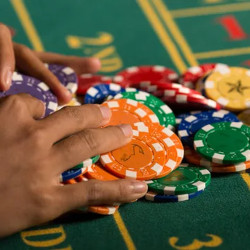The Anti-Money Laundering Council saw some red flags from casino junkets. For example, the AMLC cited increased suspicious transactions related to casino junkets. Thus, they suggested stricter measures to prevent terrorism financing and money laundering in the casino industry.
The AMLC report stated a substantial increase in suspicious transactions among casino junkets in the Philippines. Also, it showed the country’s VIP gambling system is vulnerable to terrorism financing and money laundering.
According to gambling news reports, the report showed around 3,300 suspicious transaction reports involving junket operations from September 2018 to January 2023. Also, the total amount of said transactions was 17.79 billion in Philippine Pesos.
Red Flags from Casino Junkets
 The reports covered companies from four sectors; commercial banks (71.58%) and land-based casinos (26.66%) were the most prolific.
The reports covered companies from four sectors; commercial banks (71.58%) and land-based casinos (26.66%) were the most prolific.
From December 2021 through September 2022, the second data set includes 4,110 reports from four integrated casino resorts with a total value of P17.59 billion. One casino alone accounted for 2,248 of the reports received by AMLC (54.7 percent of the total). These accounted for P12.09 billion (or 68.8%) of the overall value.
However, the AMLC cautioned that the report’s numbers might understate the actual volume and value of revenues from casino junket activities. The number of STRs submitted each year began to rise beginning in 2021. Hopefully, casinos in Georgia wouldn’t engage in these types of activities.
According to online casino platform experts, the term “junket” has come to mean “arranged gaming excursion for high rollers” at casinos. The casinos and junket operators profit from the money the junket patrons wager while they are there. The Philippines was warned by the Financial Action Task Force (FATF) to fix its shortcomings “as quickly as feasible” after it was kept on the “gray list” of countries subject to greater surveillance for “dirty money” threats last month.


